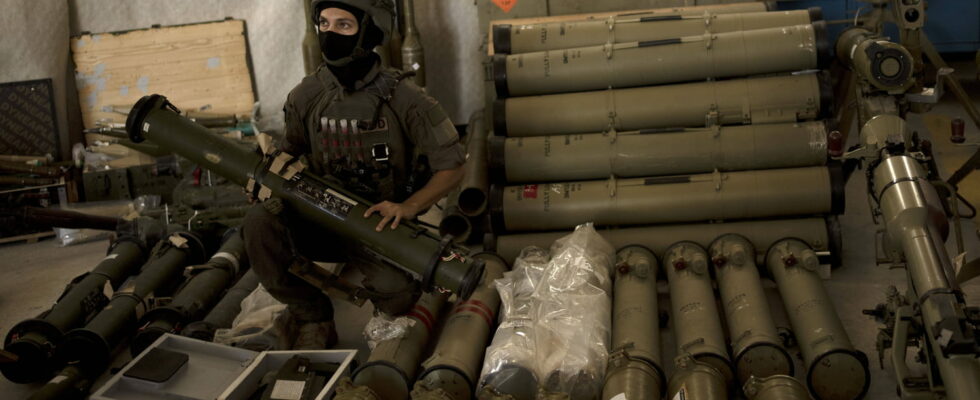The Minister of the Armed Forces Sébastien Lecornu has assured for months that France does not send weapons to Israel, but is content to provide defensive equipment. However, the use that can be made of certain equipment raises questions.
We must “stop delivering weapons to carry out the fighting in Gaza” declared Emmanuel Macron. But this sentence spoken on the airwaves of France Inter Saturday October 5 was it, in part, intended for France? Not at all according to the Minister of the Armed Forces, Sébastien Lecornu, who has refused to arm Israel for months. “We do not deliver weapons” he insisted again on the same radio on Thursday October 10. However, he recognizes that military equipment is sent to the Jewish State: “We deliver components for purely defensive systems” intended to equip the “Iron Dome” which is the “Israeli sky defense system” or even “the armor plates”.
The Minister of the Armed Forces is therefore categorical and denies the statements of certain opposition political forces who accuse him of arming the Jewish state. “Despite what La France insoumise has been saying for a year, there are no weapons delivered to Israel” maintains Sébastien Lecornu. However, it is difficult to verify with certainty the destination of military equipment sent to Israel and that certain materials are considered offensive rather than defensive equipment.
Although he firmly denies sending weapons to Israel with the aim of fueling the fighting in the Israeli-Palestinian conflict, Minister Sébastien Lecornu recognizes that military means are being delivered. And these exports are recorded in reports communicated to Parliament, but containing only financial information and not a detailed inventory. The latest one, released in the summer of 2023, indicates, however, that 189.8 million euros of military equipment was supplied to the Jewish State between 2013 and 2022 and that orders were placed over the same period for a total of 207.6 million euros.
These amounts, although substantial, do not however make it possible to precisely quantify the supplies delivered, nor their nature. The only information on this subject is given by the category of equipment provided: the report mentions category 5 which, according to commonly accepted European nomenclature, designates “fire control, surveillance and warning equipment” and ” systems and test equipment. Titles which evoke equipment used for deterrent purposes, but which can be suitable for both defense operations and more offensive ones.
Shipments of “bombs, torpedoes, rockets, missiles” and other “explosive charges”
The deputy of La France insoumise Aurélien Saintoul had also pointed out, after reading the report, the nature of certain equipment delivered or ordered, in particular those corresponding to the category of the military list ML 4, i.e. i.e. “bombs, torpedoes, rockets, missiles, other explosive devices and charges and related equipment and accessories and specially designed components therefor”. The minister replied that “the exported materials are not weapons strictly speaking, but elementary components”. “The interministerial commission for the study of exports of war materials (CIEEMG) pays particular attention depending on the material in which it is estimated that they will be integrated,” he continued in his response assuring, once again, that “equipment components falling into category ML4, if authorized, are intended for purely defensive use”.
The delivery of equipment for defensive use only is France’s main argument to explain its exports of military equipment to Israel. But this speech did not hold after the revelations of Disclosedin March 2024, on the sending by France to the Hebrew State of components for machine guns, capable of returning 100,000 cartridges adapted to Israeli weapons. The Minister of the Armed Forces then replied that these products were intended for “re-export” on components supplied “to Israeli industries which then sell to third countries”. But in the absence of control over the effective re-export of the products, some fear that this offensive material could have been used by Israel and for the conflict opposing it to Gaza, Lebanon and Iran.
